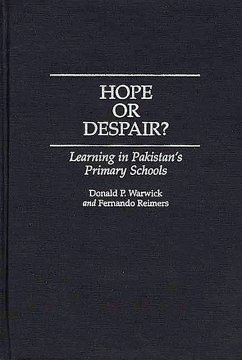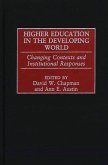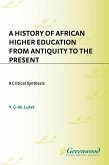Hope or Despair? asks what promotes and what holds back student learning in Pakistan's government-sponsored primary schools. Using a national sample of schools, students, teachers, and supervisors, it shows how learning is affected by student background, teachers and teaching, school supervision, facilities, and innovation. It is the first book to use achievement tests based on the national curriculum to show influences on learning in the primary schools of an entire developing country. The study also explores why some students complete primary school and others do not. The overall quality of education in Pakistan's government primary schools is low, but student learning rises with the teacher's formal education and with certain teaching practices. Student social class, a strong influence on learning in the United States, makes little difference in Pakistan. Whether the teacher is male or female has no relationship to learning in science, but it does affect achievement in mathematics. Neither supervision nor school facilities are related to achievement. This unique study will be of great interest to those concerned with schooling effectiveness in developing countries as well as to economists, sociologists, and political scientists interested in human resources in those countries.
Bitte wählen Sie Ihr Anliegen aus.
Rechnungen
Retourenschein anfordern
Bestellstatus
Storno









